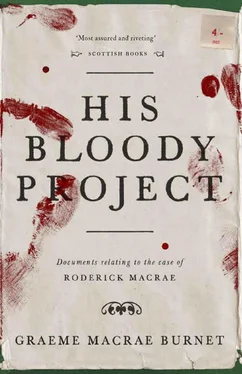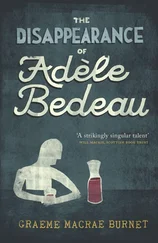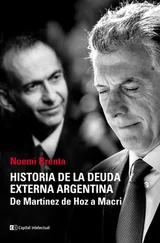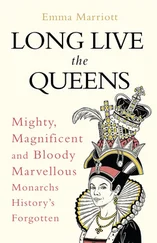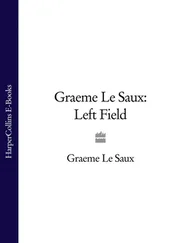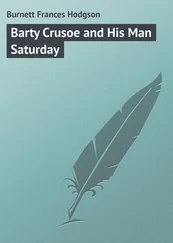‘In which direction?’
‘Towards the Big House.’
‘And did she appear distressed?’
‘Perhaps. I could not say with any certainty.’
‘Was she weeping?’
‘I could not say.’
‘Were her cheeks flushed?’
‘Yes, but in my experience there are a good many reasons for a girl’s cheeks to be flushed,’ said Ross with a smirk.
The Lord Justice-Clerk at this point reminded the witness of the gravity of the proceedings and threatened to have him taken down if he made any more remarks of that nature. Ross made a low bow to the judge and offered an obsequious apology.
Mr Gifford continued his examination of the witness: ‘So, Miss Mackenzie went into the woods with the prisoner and returned — running — some minutes later, and took her friend with her back towards the Big House?’
‘Yes, sir.’
‘And where was the prisoner at this time?’
‘He was in the woods.’
‘And did he reappear?’
‘Yes.’
‘How many minutes later?’
‘Not many, one or two.’
‘And what was his demeanour?’
‘He seemed somewhat distressed.’
‘How do you know this?’
‘He was weeping.’
‘Did he tell you what had occurred?’
‘Yes, sir.’
‘Would you be so kind as to share what he told you with the court?’
‘He said only that his advances had been rejected and he was quite broken-hearted.’
‘“His advances” — were those the words he used?’
‘I cannot recall.’
‘But you understood that he had made some “advances”?’
‘Yes.’
‘And did the prisoner display any other sign of distress?’
‘His face was red on one side.’
‘And what was the cause of this?’
‘The girl had struck him.’
‘Did you see the girl strike him?’
‘No.’
‘So how do you know she struck him?’
‘Roddy told me.’
‘Then what happened?’
‘I tried to make light of what had occurred, but seeing that my friend was genuinely aggrieved, I proposed a glass of ale to cheer him up.’
‘And did he agree?’
‘He did.’
‘And you returned to the inn?’
‘Yes.’
‘And you there took some more ale?’
‘We did.’
‘And how was your friend — the prisoner — at this time?’
‘He was greatly revived in spirits.’
‘Did anything else of note occur that day?’
‘As we were enjoying a glass of ale, a great brute of a man set upon Roddy and gave him a fearful beating.’
‘Why did this man set upon your friend?’
‘For no reason that I could see.’
‘Did you hear any words spoken between them?’
‘No, sir.’
‘And who was this “great brute of a man”?’
‘I learned later that he was Lachlan Mackenzie.’
‘The deceased Mr Lachlan Mackenzie?’
‘Yes.’
‘And what happened next?’
‘I took Roddy outside and set him on the road back to his village.’
The Solicitor-General then concluded his questioning and Mr Sinclair rose for the defence. He explained that he wished the witness to cast his mind back to the day of the deer-stalking party.
‘Was the hunt that day successful?’
‘It certainly was not,’ Ross replied with a laugh.
‘Why was that?’
Archibald Ross then described how Roddy had ‘swooped down upon the deer, waving his arms like a great bird and squawking like a banshee’.
‘This in order to startle the deer?’
‘Yes.’
‘What did you make of this behaviour?’
To loud laughter from the gallery, Archibald Ross pulled a comic face and tapped the side of his forehead with his finger. He was sternly reprimanded by the Lord Justice-Clerk and instructed to confine himself to verbal replies.
Ross then said, ‘I thought it was the most foolish thing I had ever seen.’
Mr Sinclair: ‘And had the prisoner given any indication prior to this act of what he intended to do?’
‘Not at all.’
‘It was quite sudden?’
‘Out of the blue.’
‘And prior to this act, what had been your impression of the prisoner?’
‘I had not formed any particular impression.’
‘There was nothing strange in his behaviour?’
‘No.’
‘Or in his speech?’
‘No.’
‘He was quite rational?’
‘Yes.’
‘Right up until the moment he scared off the deer?’
‘Yes.’
‘Now, you have testified to Mr Gifford that after the incident in the woods with Flora Mackenzie the prisoner was quite distressed?’
‘Yes.’
‘He was or had been weeping?’
‘Yes.’
‘And yet only a short while later, you testified that…’ — he here consulted some written notes before him — ‘… he was “greatly revived in spirits”?’
‘Yes.’
‘What was the witness doing immediately before he was set upon by Mr Mackenzie?’
‘He was dancing a jig to a fiddle.’
‘Dancing a jig?’
‘Yes.’
‘And how much time had elapsed between the incident in the woods, which had apparently distressed the prisoner so much, and dancing this jig?’
Here Ross hesitated for some moments. ‘Perhaps an hour.’
‘More than an hour or less than hour?’
‘Less than an hour.’
‘And did it strike you as in any way strange that the prisoner might one minute be weeping and the next minute dancing a jig?’
‘I merely thought that his spirits had been enlivened by a glass of ale.’
‘You did not think that just as on the mountain when the prisoner was one moment entirely rational and the next doing the most foolish thing you had ever seen, that he was subject to quite extreme swings of behaviour?’
‘I did not think about it,’ said Ross. And with that Mr Sinclair concluded his questioning and Mr Ross was released from the witness box, not before, wrote Mr Philby, ‘waving flamboyantly to the gallery, quite as if he was an actor concluding a theatrical performance, which in a sense he was’.
The Crown then called Ishbel Farquhar, a girl, described in The Scotsman as ‘representing the best virtues of Highland womanhood, being of modest appearance and with a rosy hue to her cheeks’. She was dressed in a dark pinafore and had her hair neatly arranged in plaits. Her appearance seemed to cause Roddy some anguish. His eyes began to dart around the court-room, ‘alighting on everything besides the girl who then occupied the witness box’.
After some preliminaries, Mr Gifford asked, ‘Can you tell the court how you came to make the acquaintance of Flora Mackenzie?’
‘She came to work in the kitchens of the Big House.’
‘Where you were also employed?’
‘Yes, sir.’
‘And you became friends?’
‘Yes.’
Miss Farquhar answered in such a low voice that she was asked by the Lord Justice-Clerk to speak up so that the jurymen might hear her replies.
‘And you were with Flora Mackenzie on the afternoon of the Gathering in Applecross on the 31st of July?’
‘Yes, sir, I was.’
At the mention of her friend’s name, Miss Farquhar began to weep and Mr Gifford gallantly produced a handkerchief from his pocket and passed it to her. When she had composed herself, the Solicitor-General apologised for distressing her.
‘We are here, however, on the gravest business,’ he continued, ‘and it is necessary that you testify to those parts of the narrative which have a bearing on this case.’
‘I’ll do my best, sir,’ replied Miss Farquhar.
‘Did Flora ever speak to you about the prisoner?’
‘Yes, sir, she did.’
‘And what did she say?’
‘She had once or twice walked out with him and that she liked him well enough, but that he had some queer ideas and sometimes said strange things.’
Читать дальше
